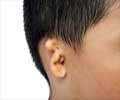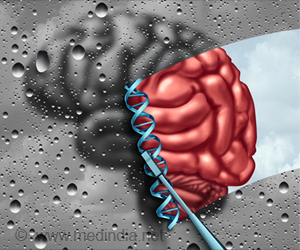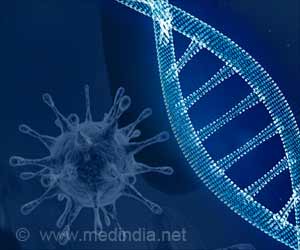A new study explains why older male fruit flies are more likely to transmit mutations to their progeny, underscoring the potential of genetic disease.
- Aging is a complex biological process that involves changes in gene expression and mutational load
- In many species, including humans, older fathers pass on more paternally derived de novo mutations
- More mutations per RNA molecule in older and younger flies were observed at every stage of spermatogenesis
Does Age Influence Genetic Mutations During Spermatogenesis
Researchers in Li Zhao’s lab analyzed mutations that occur during spermatogenesis, the process of producing sperm from germline cells. They discovered that mutations are widespread in both young and elderly fruit flies’ testes but are more prevalent in older flies from the start. Furthermore, many of these mutations appear to be repaired by the body’s genomic repair mechanisms in younger fruit flies during spermatogenesis, but they fail to be mended in older flies’ testes.“We were trying to test whether the older germline is less efficient at mutation repair, or whether the older germline just starts more mutated,” says first author Evan Witt, a graduate student in the lab and now a computational biologist at Biomarin Pharmaceuticals. “Our results indicate that it’s both. At every stage of spermatogenesis, there are more mutations per RNA molecule in older flies than in younger flies.”
Testes Works Hardest to Prevent Genetic Mutations
Genomes keep themselves clean by employing a variety of repair processes. Testes must work extra hard since they have the highest rate of gene expression of any organ. Furthermore, genes that are strongly expressed during spermatogenesis have fewer mutations than those that are not. This may appear to be paradoxical, but it makes sense: One explanation proposes that the testes express so many genes as a kind of genomic monitoring mechanism- a technique to detect and then eliminate harmful mutations.The weed-whacker, however, appears to fizzle out when it comes to older sperm, according to the researchers. Previous study implies that a malfunctioning transcription-coupled repair mechanism, which only repairs transcribed genes, could be to blame.
To obtain these findings, scientists from the Laboratory of Evolutionary Genetics and Genomics performed single-cell sequencing on the RNA from the testes of approximately 300 fruit flies, roughly half of which were young (48 hours old) and half of which were old (25 days old), advancing a line of inquiry they began in 2019. They sequenced the genomes of each fly to determine if the mutations they discovered were somatic, inherited from the flies’ parents, or de novo (arising in the fly’s germline). They were able to prove that each mutation was genuine. “We can state unequivocally that this mutation was not present in the DNA of that same fly in its somatic cells,” Witt explains. “We know it’s a brand-new mutation.”
The researchers were able to link mutations to the cell type in which they originated thanks to their unusual approach of inferring genomic alterations using single-cell RNA sequencing and then comparing them to genomic data. “Because you can monitor them throughout spermatogenesis, it’s a fantastic approach to evaluate mutational load amongst cell types,” Witt explains.
What Influences Mutation Repair
The next step is to broaden the study to include more age groups of flies and see if this transcription repair mechanism may occur- and if so, what pathways are involved, according to Witt. “What genes,” he wonders, “are driving the differential in mutation repair between old and young flies?”Because fruit flies reproduce rapidly, Zhao believes that studying their mutation patterns can provide fresh insights into the impact of novel mutations on human health and evolution.
Witt adds, “It’s largely unknown whether a more mutated male germline is more or less fertile than a less mutated one. There’s not been very much research on it except for at a population level. And if people inherit more mutations from aging fathers, that increases the odds of de novo genetic disorders or certain types of cancers.”
Source-Medindia














